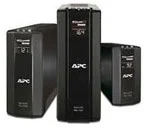- Limited Warranty: Used UPS systems generally come with a limited warranty, if any at all. Unlike new UPS systems that often have longer warranty periods, you may have limited coverage or no warranty coverage at all when purchasing a used UPS. This means that any repairs or maintenance costs will be borne by you.
- Uncertain History: When buying a used UPS, you might not have a complete understanding of its maintenance history, previous usage conditions, or any potential issues it may have faced. While reputable sellers typically ensure the functionality of the used UPS before selling it, there is still a level of uncertainty compared to purchasing a new UPS.
- Reduced Lifespan: Used UPS systems have already been in operation for some time, which means they have experienced wear and tear. Depending on the age and condition of the used UPS, its remaining lifespan may be shorter compared to a brand new UPS. This should be taken into consideration when evaluating the long-term viability of a used UPS.
- Lower Depreciation: UPS systems, like any other electronic equipment, experience depreciation over time. By purchasing a used UPS, you bypass the initial depreciation phase that new UPS systems undergo. This means that the used UPS may retain its value better than a new one if you decide to resell it in the future.
Ultimately, the decision to choose a used UPS over a new UPS depends on your budget, urgency, and specific needs. Carefully evaluating the pros and cons can help you make an informed choice that aligns with your business requirements.
There are several occasions when it may be preferable to use a used UPS over a new UPS. Here are a few scenarios where opting for a used UPS can be advantageous:
- Budget Constraints: If you have budget limitations and need a power backup solution, choosing a used UPS can be a cost-effective option. Used UPS systems are generally priced lower than new ones, allowing you to allocate your resources efficiently.
- Short-Term Needs: If you require a power backup solution for a short period or temporary project, investing in a new UPS may not be justifiable. In such cases, a used UPS can provide the required backup power without incurring high expenses.
- Redundancy or Backup: When you already have a primary UPS system in place and need a backup or redundant power source, a used UPS can be a suitable choice. Having a secondary UPS, even if it is used, can enhance the reliability and redundancy of your power backup infrastructure.
- Compatibility with Legacy Systems: In some situations, businesses may rely on older or legacy equipment that is not compatible with the latest UPS models. Used UPS systems, particularly those from the same era as the legacy equipment, can offer better compatibility and integration.
- Emergency Replacement: If your existing UPS fails unexpectedly, you may require an immediate replacement to minimize downtime. Opting for a used UPS allows you to quickly source a replacement unit, ensuring uninterrupted power supply while you plan for a long-term solution.
- Testing or Development Environments: Used UPS systems can be suitable for testing or development environments where the focus is on functionality rather than acquiring brand new equipment. These environments often have specific power requirements, and using a used UPS can provide a cost-effective solution without compromising the testing or development process.
Remember to assess the condition, reliability, and performance history of the used UPS before making a decision. Reliable sellers or reputable providers can help you choose a used UPS that meets your specific needs and offers optimal performance for your intended use case.

